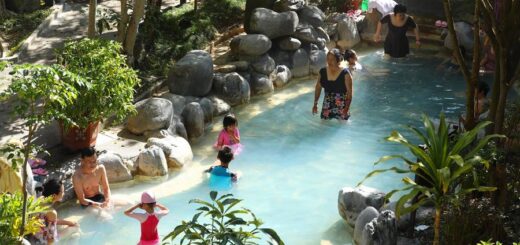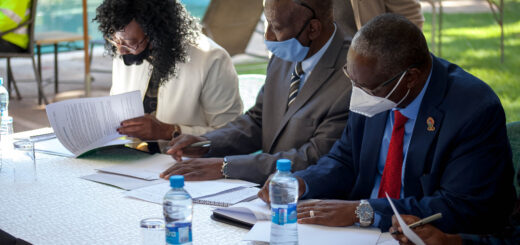Too little rain, too much rain!
Notice: Undefined index: catFilterList in /home/zambi/public_html/wp-content/plugins/wp-likes/api.php on line 243
Rainbow News
07/01/25
Too little rain, too much rain!
Droughts and floods are killing agriculture, hydropower and the economy- how can we reduce them?
If you have been following my articles in The Rainbow for the past 2 years you may be thinking I’m a soil fanatic; if so you are correct and I hope to persuade you that healthy soil is the most important thing in our lives here on earth, healthy soil can set us free, healthy soil accepts and holds rainfall, degraded soil does not and will kill us all.
• Healthy soil allows us to grow plants and feed animals without expensive fertilisers or water stress; degraded soil produces less and less at higher and higher cost as we compensate for nutrients with fertiliser and spend money on irrigation.
• Healthy soil produces healthy plants that cannot be eaten by pests or be attacked by disease. Think about it, if healthy plants could be eaten by pests, insects would have quickly multiplied and eaten all the plants in the world!
• Healthy soil captures rain and moves it slowly through the soil, feeding plants, replenishing the water table and providing steady flows of water to dambos (wetlands), streams and rivers so that water is always available for plants and animals to use through the dry season.
• Degraded soil is hard and bare like a tar road meaning any rain that falls, runs off and since the water has left quickly, it leaves our soil dry and droughts return within a short time.
As soil degrades to a catchment or regional scale, rivers flow fast and brown carrying precious soil down the catchment silting up rivers and dams with sand, reducing flows for the rest of the year. We have all seen videos of such rivers over the past two weeks, can you imagine that soil filling up Kariba and other dams. Most of the smaller dams in the southern provinces have already silted up and broken due to the rush of muddy water.
I have talked a lot about how we can improve the soil by changing the way we manage our land. Don’t let livestock wander around aimlessly overgrazing, organise them into bigger, bunched herds and plan for them to get to each patch of grass before it burns. Don’t let fire onto your land, bare soil is the biggest threat to our future by far! In crop fields, use manure instead of fertiliser, mix up the crops and bring back some deep-rooted plants including trees to keep the soil alive and fertile year-round. This way of farming is called agroecology or regenerative management, based on simulating nature, and its catching on around the world.
Is Zambia’s policy addressing of the water crisis?
In Septer 2024 Government published a National Rainwater Harvesting RWH Strategy and Implementation Plan and proposed solutions include Rooftop Collection systems, Small Dams and Ponds, Check Dams and Gully Plugs, Stormwater Collection and Trenches, Ditches, and Ponds. These all address the symptoms not the root cause and are very expensive and inefficient at catching water that is already moving on the surface.
Most ‘commercial’ farmers have had contours in their fields since the 1950’s but have now found that healthy soils are far more effective at catching rain where it falls. Small dams and gulley plugs can help slow water to improve infiltration in emergencies but unnecessary if soil health, biodiversity and wetlands are restored by good management. The report says that over 2000 dams have been built around rural Zambia but fails to mention how many are still holding water, the majority I see have silted up and broken due to excessive runoff feeding them. You may be rich enough to afford a tank to catch rainwater but it won’t last long into the 8-month dry season, do the math!
The strategy talks about RWH Practices including Soil/Stone/Vegetation Bunds, Conservation Tillage, and again I think farmers have found these are ineffective, impractical and/or too costly. Planting on the Contour (not down the slope!) and Mulching are the two good suggestions in the report but must go together with improved grazing rotation of livestock and reduction in burning to be effective.
It’s great that the Government is thinking about harvesting rainwater but it will require every citizen to grasp the complexity of this issue and help develop effective management to get rain back in the ground where it is safe. My 2 cents!
Rolf Shenton
Grassroots Trust























